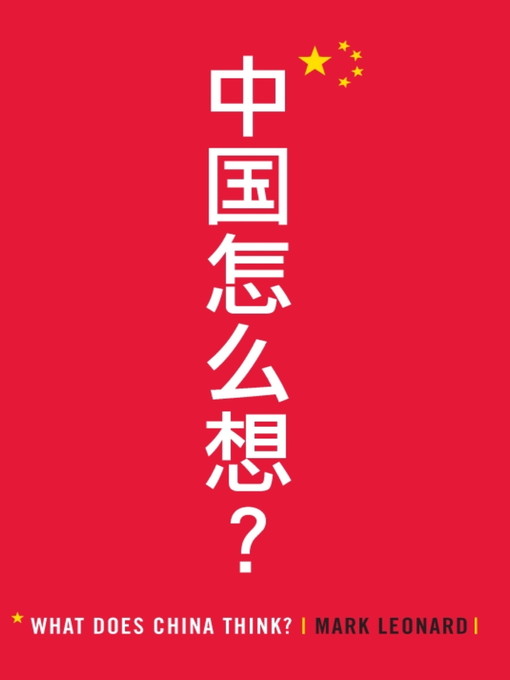
What Does China Think?
کتاب های مرتبط
- اطلاعات
- نقد و بررسی
- دیدگاه کاربران
نقد و بررسی

March 24, 2008
Commonly characterized as a juggernaut monomaniacally focused on breakneck economic growth, China is actually riven by a lively, far-reaching debate over its future, argues this inquisitive study. Leonard (Why Europe Will Run the 21st Century
) divides Chinese intellectuals into a New Right that wants to extend laissez-faire market reforms and an increasingly influential New Left that decries rising inequality, corruption and environmental destruction and wants a strong government to rein in capitalist elites and protect workers. Meanwhile, political reformers push cautiously for local and Communist Party elections against a consensus that associates democracy with chaotic mob rule or national dismemberment. China's foreign policy is split between liberal internationalists and truculent “neo-comms” who contend that China must be ready to use force against its enemies. The author notes that these ideological divisions resemble those in Western countries, but emphasizes the distinctiveness of Chinese ideas, like the concept of the “deliberative dictatorship” of a one-party state that stays responsive to popular pressures, or a “Walled World” where globalization enhances rather than erodes the autonomy of national governments. Leonard's is a lucid, eye-opening account of China's intellectual scene and its growing importance to the world.

July 15, 2008
Leonard (executive director, Open Society Inst. for Europe) argued in his "Why Europe Will Run the 21st Century" that the American Century based on "hard power" will give way to a European Century based on "soft power." Figuring in that process that China could be either a key partner or deadly adversary, Leonard became an "accidental Sinologist." He writes of smoking Cuban cigars in Beijing and debating with policy intellectuals whose arguments fell into several groups that he labels in the text. The "New Left" accepts the market system but advocates democracy and government welfare programs, while "Yellow River Capitalists" want to let a new capitalist class set priorities. What Leonard elsewhere wittily calls "Neo-Comms" mirror the American "neo-cons." Unlike the first two groups, whose focus is domestic, the "Neo-Comms" push a great power strategy of military expansion, aggressive cultural diplomacy, and hard-nosed international law. Leonard vaunts China's present model of economic growth and political control, downplaying its authoritarianism, but argues that we need to appreciate Chinese debates, which will shape future policies. Libraries with substantial world affairs collections should add this astute and lucid book.Charles W. Hayford, Northwestern Univ., Evanston, IL
Copyright 2008 Library Journal, LLC Used with permission.

























دیدگاه کاربران